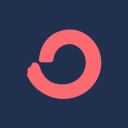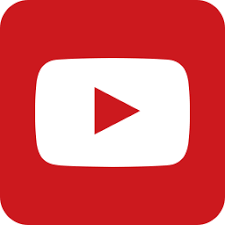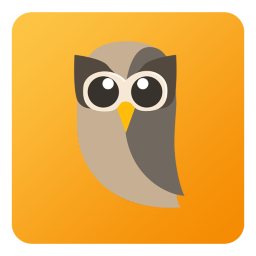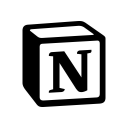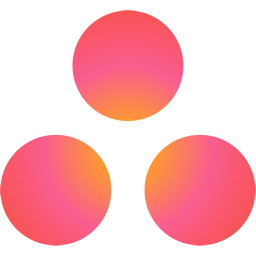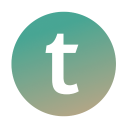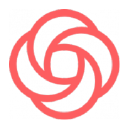How I Started A $10K/Month Career Transition Coaching Business
Hello! Who are you and what business did you start?
My name is Lydia Lee and I’m the Work Reinvention Strategist and Small Business Coach at Screw The Cubicle. I started my company six years ago to support mid-career transitioners who wanted to find alternative pathways beyond the 9-5 existence.
As I started working with more people and understanding the origins of purpose, I realized the journey is about more than just escaping a bad job:
People shouldn’t sacrifice their lives for work, but they still need work in their lives. The right work.
For me, the ‘right work’ has been supporting others in living lives that are aligned with their values, by creating meaningful work and redefining what success means to them.
My location-independent business has allowed me to work with global clients all over the world (almost 3 continents!) while having a homebase in Bali, Indonesia. My core work focuses on helping corporate professionals transition their expertise and skills into an independent career where they choose a pathway like freelancing, consulting, and solopreneurship to earn a great living. From self-guided courses like WorkReinvented to my 90 Day Launch program, the mission is to support passionate individuals to build the life they want with a business they can love.
In this era of global connection, there’s never been a better time to lead an unconventional life and do meaningful work on your terms. New opportunities have shifted how we can make a living and allowed us to dream bigger, bolder, and way beyond the conventional path.
More than ever before, we need individuals to share new ideas that can shape the world we live in. Past clients have told me that it’s been really important to them to not just reinvent the way they work, but the purpose behind why they create, design, and produce helpful solutions for others. Work can certainly be something more than just paying the bills.
My monthly revenue is approximately $10,000/month, where I measure my progress based on how much time I have for my life. Money isn’t the only metric of success for me, and I’m constantly evaluating how I can scale my time and work less to achieve more.

What's your backstory and how did you come up with the idea?
My business originally started as a blog to document my ‘identity crisis’ going from employee to entrepreneur and grew into a full-time coaching and training business 6 years ago. To be honest, it was a place I could point friends and family towards when they asked me, “So, what are you doing with your life again?”
It wasn’t until a blog reader had sent me a message through my website to ask about coaching services that I had to google what a coach was. This was the moment that planted the seed that my work on the blog can expand to help in more helpful ways.
Since I was running a different business at the time, which was my transition business from corporate where I remained in the international education industry as an independent consultant, I wanted to explore whether coaching was something I would want to invest time and energy to do.
What kind of coach would I be? How would I create a coaching approach that honored my personality and values? What sort of problems am I best positioned to solve? Who do I really want to work with (and would never work with)? I didn’t want to spend money and time creating a new business until I understood these factors.
In order to maintain simplicity (and sanity!) in my business, it’s been a big learning for me to say “No”. I’ve had to learn to take pauses to analyze decisions without simply taking any opportunities that come my way.
I continued running my first business that was paying the bills, while I explored a side hustle with the coaching business with my blog.
I decided to create a ‘beta test’ program by communicating it to my readers, close social circles, and my ‘watering holes’ of associations and communities I already belonged to. This allowed me to interview the right clients that could benefit from my experience that is going through a specific transition in their career. I worked with 8 beta clients for 2 months for free before I released my first offer on my website. It was important to me to prove my concepts first with real humans, gain experience, and have credible testimonials for my work.
After the beta test, I became certified as a True Purpose™ Coach and combined my education with personal coaching with my own concepts of a career transition from my own experience as well as my beta clients to my first program. After 6 years of guiding hundreds of people to reinvent their careers and start meaningful businesses, I can truly say that real-world experience trumps anything you’ll learn on paper. Every time I committed to working with a client throughout the years, I documented processes, questions, and steps that later turned into philosophies and concepts I would use repeatedly with every client. It became my own signature Framework.

Take us through the process of designing, prototyping, and manufacturing your first product.
When I first started Screw The Cubicle, I felt that it was important to me to teach what I have experienced most (corporate transition, dealing with burnout, preparing for entrepreneurship) first. It wasn’t until I went through my own deep learnings with building a sustainable business, that I felt ethically ready to mentor on business launching and growth strategies. What I’ve learned is starting where you are with one core problem to solve is a great place to start, and you don’t need to solve every single problem to be successful.
With my beta test experience, I was armed with great feedback from the inaugural surveys I did with these tester clients. It helped me to refine my coaching process and create materials that would help me save time to teach concepts (that can be used over and over again with each intake). Then I set myself up for another ‘testing period’, where my goal was to coach 15 more people on this refined process with my first offer.
After working one-on-one with those people, this was when I felt I was ready to turn these steps into a self-guided course to add an additional revenue stream to my business. I ran the first intake live to be ready to cover any gaps of questions that may not be covered in the course, but also to ensure the first students received amazing support (they later become ambassadors for the course).

My costs were low to run my coaching business by choosing tools that were affordable or completely free to use like Zoom, Skype, and hosting my courses on Teachable.
Describe the process of launching the business.
I was really glad I started a blog first to prove the concept to readers before I started my coaching business. Having a like-minded audience that I’ve already built social equity with was really helpful in having a list of people to market to!
I’m a big believer in simplifying strategies so I thought about how I could ‘drink from my own wells’. This was my email list I was already building with my blog, but they were also my own low-hanging fruit of networks and communities I already belonged to (my Linkedin connections, previous colleagues, personal social media channels, meetup groups).
I created a launch strategy of teaching and education as a way to market my services. What better way to build trust than to show how you help! Using strategies like webinars and Facebook live streams, I committed to sharing and teaching my concepts at least once per week to warm people up to my work before selling anything to them.
As a Solopreneur that sells higher-end services, I care about quality, not quantity. It was important for my business launch to focus on creating content that appeals to a buyer that values intimacy and personalization, rather than a bombardment of generic content they can get elsewhere. I found that long-form content and training classes really help convert someone who needs personal strategies from coaching, rather than just a passive course.
During my initial launch, I’ve found that the best marketing efforts are human-based. Like speaking directly to partners on the phone rather than a cut/paste email. ROr reaching out to clients personally through a tool like Loom surprises and delights people to reply. Giving people honest feedback and powerful conversations through personal discovery calls can be categorized as a ‘funnel’. Intimacy and personalization have helped me to stand out in my business, rather than relying on automation.
I’ve found that including my past clients to share their stories, journeys, and personal experience has been great to not only feature them but to showcase the credibility of my work with them. Doing it through a webinar or virtual chat show can be great as a marketing tool.

Defining my own success and understanding ‘what’s enough’ financially for my life has been important to sustaining myself as a business owner. It can be so easy to do more, have more, and grow bigger without a real reason to.
Since launch, what has worked to attract and retain customers?
In my many trial and error years of figuring out what worked for me to market and attract customers, I’ve found that picking one or two attraction ‘engines’ has been valuable in ensuring I keep things simple and consistent.
When someone is first starting out in their business, it’s totally OK to try several things to find your ‘groove’ and best channels. At this point, it’s great to evaluate how you like to market, where your audience best engages with you, and the kind of platforms or strategies you can see yourself consistently committing to every single week (this is important as your visibility for your business won’t happen overnight).
I learned that my genius zone in marketing is when I’m in the “Live Lydia” mode. It would take me 3x longer to write a blog than it was to film exactly what I want to say in a video format. I shifted my blog to then feature video blogs instead and started a Youtube channel which was one of my biggest sources of warm leads.
What I’ve learned from building a Youtube channel is to choose a schedule that works for you to create videos to your audience on that platform. Not an “I’ll film when I have time” habit, but build a real practice on showing up consistently. It may be easier to film when you brainstorm content ahead of time. I created my channel with the approach of having three ‘show theme pillars’ (i.e. corporate transition, start a business, lifestyle freedom) and then crafting topics that fall under each pillar to stay focused on my best categories.
It was important for me to not only build my own audience post-launch, but also to expedite that process with collaboration, features, and partnership. So, I created outreach campaigns where I connected with aligned brands to co-host webinars together, write blogs for their audience, and share my work on their podcasts. In time, I was also pitching to media outlets like Forbes, The Telegraph and Huffington Post, which elevated my business profile and expanded my reach to a wider audience. Doing your own legwork of researching the right journalists, story angles, and media platforms to pitch to ahead of time is a good idea as you have one attempt to ‘wow’ them in your first email.




Storytelling has been a skill I’ve had to learn to do well when it comes to PR and media opportunities. And it’s been one of my most fun ways to build visibility!
How are you doing today and what does the future look like?
After my first two years of business (what I call the business ‘hump’), I was reaching six-figures a year in my business revenue. I was profitable in the first 6 months of my business because I chose to launch it when I moved to a lower-cost living spot in Bali, Indonesia. This helped me to not panic about high rent costs and gave me some financial space to make mistakes and learn during my first year of business.
Six years later, I still don’t spend money on ads, because I’ve gained more momentum for growth in my service-based business through relationships and more hands-on marketing. This may not be for every business, but for mine, it’s worked well with my personality and approach to how I want to do business.
This year in 2020, I plan to release my crowdfunded book that has had amazing early backers from my community! Especially as we navigate big changes in remote work and location-independent careers in the time of COVID-19, I can’t think of a better time to share this.

Through starting the business, have you learned anything particularly helpful or advantageous?
Defining my own success and understanding ‘what’s enough’ financially for my life has been important to sustaining myself as a business owner. It can be so easy to do more, have more, and grow bigger without a real reason to, just because others may be doing it.
I’ve also learned a lot from building a team a few years ago that managing people is not my favorite thing in the world! I now choose to stay small strategically, while hiring higher-end contractors and freelancers on a project basis. This really allows me to run a minimalist business, earn what I need, and have the real asset of time and flexibility in my life.
In order to maintain simplicity (and sanity!) in my business, it’s been a big learning for me to say “No”. As someone who is a high achiever, I’ve had to learn to take pauses to analyze decisions without simply taking any opportunities that come my way. It’s also been a learning curve for me to really question growth where I need to grow with purpose, and not slip into comparing my success to my colleagues and other people in my industry.
As I write this, the world is going through the biggest work-at-home experiment. It’s been an interesting time for me to think about pivoting how my offers can serve the needs of the marketplace right now. The world of work is changing so rapidly right now and my mission is to ensure people gain the resources and skills they need for the future of work.

What platform/tools do you use for your business?
I love tools that enhance communication and human interaction. I primarily use Zoomto teach classes or coach individuals, Loom to give feedback to clients or reach out to leads, Webinar Ninja to host webinars and masterclasses, Ecamm Live for high-quality live streams, Notion for planning and my agenda, Hootsuite to schedule social posts and Asana for project management.
I focus my energy a lot on producing content for my Youtube channel, and use Convertkit for my email broadcasts weekly to my audience. Teachable is what I use to host my courses.
What have been the most influential books, podcasts, or other resources?
Essentialism by Greg McKeown has certainly helped me to slow down, do less, and get the right things done in my life and business.
Company of One by Paul Jarvis is a book I wish I read years ago before spending half my earnings building a big team. This book has helped me to be proud of being a Solopreneur and to create a model for my business that best suited my lifestyle choices.
What Works Network is a business community run by Tara McMullin that I’ve belonged to for many years and it’s a ‘guru-free’ zone. It’s been refreshing to share ideas with honest business owners that are not about the fluff but practical ways they’ve navigated different stages of entrepreneurship.
10% Happier Podcast is my go-to podcast show for supporting me with mindfulness and creating healthier practices for my high functioning anxiety.
Advice for other entrepreneurs who want to get started or are just starting out?
Start where you are. Don’t wait for the stars to align or whatever you think is the ‘perfect time’ to start - there isn’t one. As a startup, it’s important to focus on meaningful metrics like personal progress (reached out to two leads, produced a weekly video) rather than vanity metrics (number of followers you have, email list number) to maintain motivation.
You also don’t know what you don’t know. Finding a mentor or support system where you can get help from people who have done what you’re dreaming to do is so important. We need each other. Don’t choose a mentor only based on their social standing or money they’ve made. The right mentor is one that has similar values and approaches to how they are a Founder or the way they build/run their business. Trust me, finding an aligned mentor will ensure you aren’t doing things that challenge your values or build a model that isn’t conducive to the life you want to lead.
Lastly, keep your body and your mind healthy for the journey of entrepreneurship. We have significant burnouts happening in the entrepreneurship world that no one wants to talk about. Without your health, your business will suffer anyway. Schedule time for movement, fitness, and wellness the same way you will schedule projects for your business. We need you for the long-haul!
Are you looking to hire for certain positions right now?
I’m not looking for someone to hire at the moment, but I’m looking for like-minded partners or podcast hosts that would love to work together! I’m always available for collaborations and sharing meaningful conversations through podcast interviews.
Where can we go to learn more?
If you have any questions or comments, drop a comment below!

Download the report and join our email newsletter packed with business ideas and money-making opportunities, backed by real-life case studies.

Download the report and join our email newsletter packed with business ideas and money-making opportunities, backed by real-life case studies.

Download the report and join our email newsletter packed with business ideas and money-making opportunities, backed by real-life case studies.

Download the report and join our email newsletter packed with business ideas and money-making opportunities, backed by real-life case studies.

Download the report and join our email newsletter packed with business ideas and money-making opportunities, backed by real-life case studies.

Download the report and join our email newsletter packed with business ideas and money-making opportunities, backed by real-life case studies.

Download the report and join our email newsletter packed with business ideas and money-making opportunities, backed by real-life case studies.

Download the report and join our email newsletter packed with business ideas and money-making opportunities, backed by real-life case studies.
